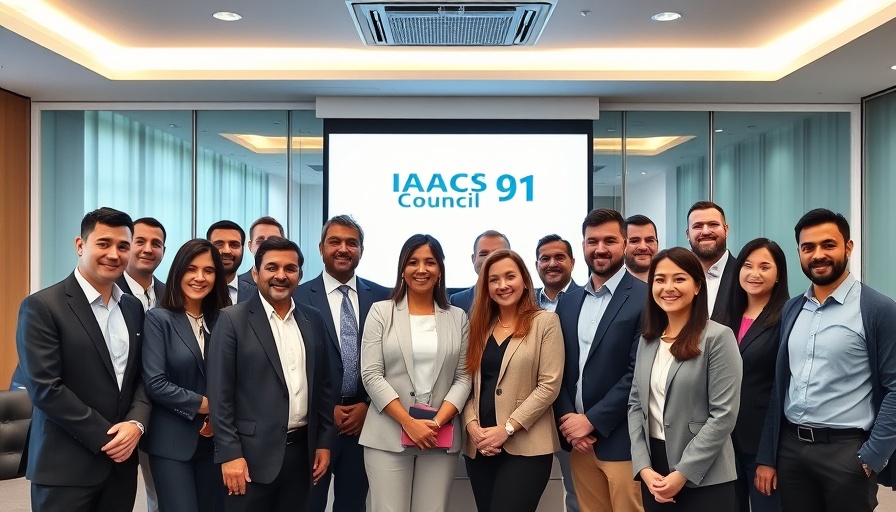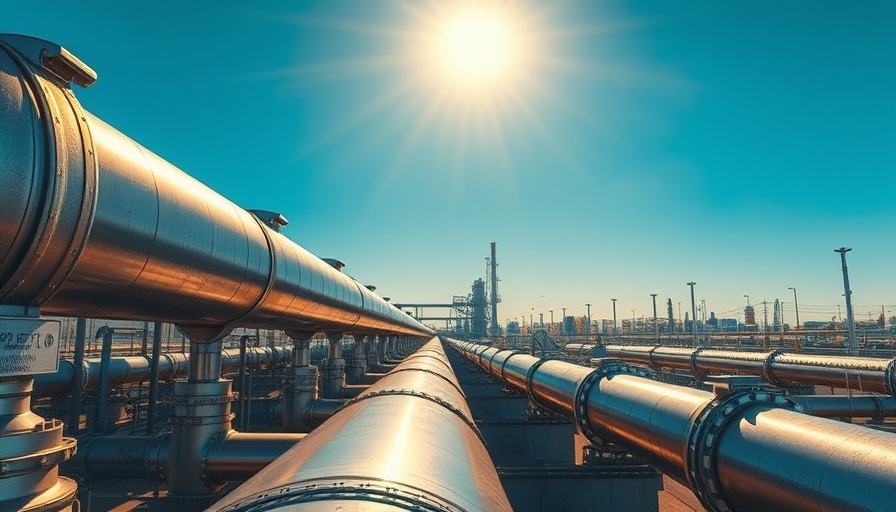
Unlocking the Future: IACS's Commitment to Digitalization
The recent meeting of the International Association of Classification Societies (IACS) Council in Beijing brought exciting updates on the maritime industry's path towards digitalization and decarbonization. With thriving discussions centered around the Safe Digital Transformation Panel’s objectives, the council emphasized its pivotal role in navigating the complexities of new technologies and autonomous systems. These include efforts towards cybersecurity, the classification of complex systems, and the embrace of marine autonomous surface ships (MASS).
Charting New Waters: The Impact of Autonomy in Shipping
The potential for autonomous vessels to revolutionize shipping cannot be underestimated. IACS's proactive pursuit of regulations around MASS highlights not only the benefits of efficiency and reduced human error but also raises critical questions of safety. Incorporating a robust framework for cybersecurity and communications, as discussed in their meeting, is vital. This ensures that while we advance into an era of digital ships, we are maintaining a vigilant watch over safety and operational integrity.
Fueling Change: New Technology and Energy Solutions
Three years into the development of the Safe Decarbonization Panel, IACS acknowledged significant advancements in chemical technologies that aim to reduce the carbon footprint of the maritime industry. With ongoing work on a technology-neutral basis to support alternatives like ammonia, methanol, and even hydrogen, the future of shipping presents a diverse palette for energy solutions. Most notably, the Council is exploring nuclear technology, provoking discussions about its viability and implications in shipping.
Adaptation Over Time: Revising the Common Structural Rules
IACS is committed to revising its Common Structural Rules (CSR) to adapt to evolving industry standards and stakeholder feedback. After a comprehensive consultation, the Council recognized the importance of transparency and assured stakeholders that the revised rules would maintain or enhance safety levels. As we look towards integrating ESG (Environmental, Social, and Governance) principles, the emphasis on safety must remain a priority in this transition.
Connecting Dots: Integrating Sustainability in Classification
Sustainability is increasingly critical for organizations like IACS, as it aligns with their core mission centered on safety and environmental protection. Not only will developing ESG principles guide IACS’s governance, but they will also harmonize with existing policies of its member organizations. This integration is crucial not only for regulatory compliance but also for fostering a collective commitment to sustainable practices across the industry.
Future Trends: Preparing for a Decarbonized and Digital Tomorrow
As the maritime industry stands at the brink of a digital and decarbonized revolution, the IACS’s recent initiatives represent a defining moment in its evolution. With an adaptive approach to technology, fuel alternatives, and environmental governance, the organization is positioning itself as a leader in maritime innovation. Stakeholders must remain engaged as these developments unfold, ensuring that the industry not only advances technologically but also aligns with broader societal values concerning sustainability.
As maritime professionals, observers and stakeholders, it’s essential to stay informed on these shifts. Understanding the nuances of IACS’s strategies ensures we’re not just passive witnesses, but active participants in shaping the maritime landscape of tomorrow.
 Add Row
Add Row  Add
Add 




Write A Comment